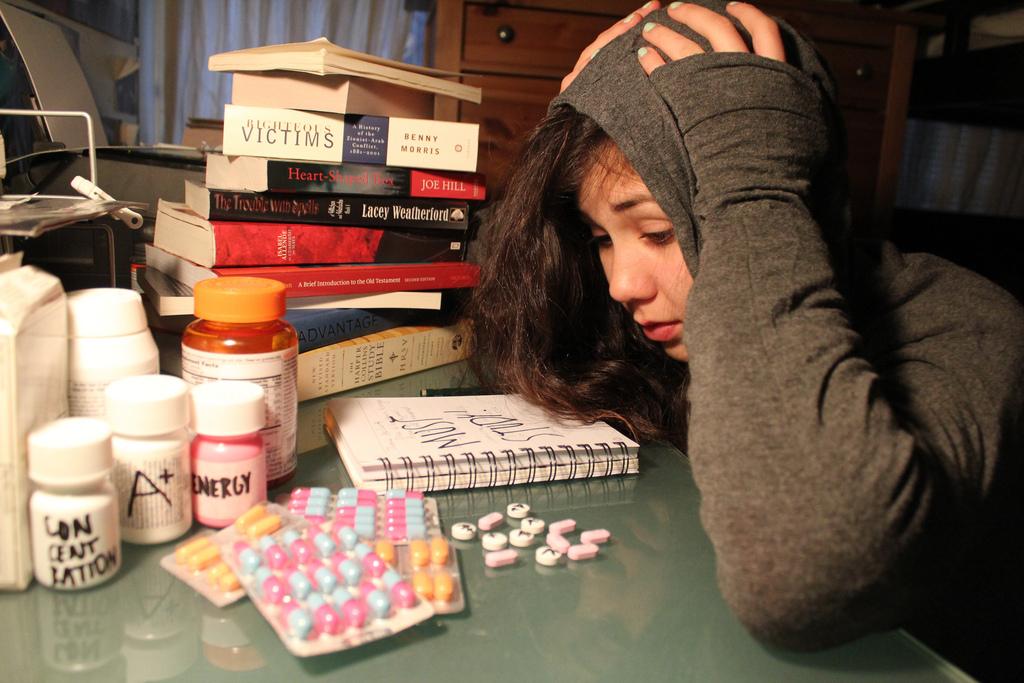Adderall at Large, Dangerous Presence With Students
March 8, 2012

Adderall has grown to become a major presence as an illegal substance in the Fordham community. As a prescription drug mainly used to treat people with forms of Attention Deficit Disorder (ADD), most students who use Adderall do so for its focus-increasing effects. Because of its popularity, Adderall is now one of the most expensive controlled substances at Fordham, according to Dan Downs, Fordham College at Lincoln Center (FCLC) ’13, and other students.
Downs experienced Adderall’s popularity firsthand. “I have many friends who illegally purchase prescription drugs to better do homework,” Downs said. “They say it’s useful when cramming for midterms, but I’ve heard people complain that it’s the most expensive drug on campus.”
Although it is illegal to use any prescription drug without having a prescription, such use of stimulants like Adderall has risen greatly in recent years. According to Dean of Students Keith Eldredge, 17.3 percent of students surveyed by the spring 2011 Core Alcohol and Drug Survey had used prescription stimulants that were not prescribed to them or for reasons other than intended in the last year.
According to Eldredge, self-reporting is really the only way Fordham has of knowing how prominent drugs like Adderall are. “We get some information from that survey,” Eldredge said. “Otherwise it comes up in conversation students have with RAs and student leaders. We have a sense that it’s out there, it seems to be rising, but it’s hard to get a solid grasp on it.”
Downs says it is hard to figure exactly how many students use Adderall “because it isn’t a social drug; everyone does it in private while working. It’s more like getting a cup of coffee at a cart on your way to work,” Downs said.
Stephanie Chase, FCLC ’13, has also seen students use Adderall without a prescription. Two of her roommates when she was a ffreshman (who have since transferred to different schools) used Adderall regularly. According to Chase, one used it to do homework and focus, but the other had purely social reasons. “She really wanted to seem cool in front of her friends and boyfriend,” Chase said. “She really bent to peer pressure on that.”
Chase also believes that Adderall usage is higher among students than what she has experienced. “People talk about it openly. I know people can get addicted to it, but the people I saw weren’t abusing it. They were just really focused.”
Whether or not students are using abusive amounts of non-prescriped drugs, the Student Handbook’s policy regarding illegal use of prescription drugs prohibits their possession, use and distribution, as they violate the University Code of Conduct and federal laws. Director of the Center for Ethics Celia Fisher understands why Adderall and similar drugs are outlawed.
“Adderall has side-effects, and taking something that has side-effects without medical need is dangerous,” Fisher said. According to the U.S. National Library of Medicine, Adderall’s side effects are many and range from restlessness and nausea to seizures and changes in sex drive and ability. In addition, Adderall is known to be abused and can cause addictions.
But Fisher sees other reasons for discouraging Adderall’s use. “There is a myth that kids come in to school thinking they are at a disadvantage if they don’t use Adderall,” Fisher said. “It can increase attention, but it won’t make them smarter; they still have to learn the material. We have to break some of the myths that it’s an academic advantage to be on this.”
Downs, however, does not believe there is a problem with Adderall usage at Fordham. “I think we as humans have set a bar for permissibility for things more dangerous, such as alcohol. Given the continuingly accelerating pace, things like Adderall come to the fore.”
But Fisher would remind people of the other implications of using these drugs without prescriptions. “In terms of social responsibility, these students using it for something they don’t need, are creating a shortage for people who need it.”
Fordham has various outlets students may go to if they feel they or someone they know have a problem with any drugs. According to Eldredge, Fordham’s medical amnesty policy places a student’s health above any punitive reactions. Eldredge encourages students to come to see staff members of the Office of Residential Life or the Office of Student Leadership and Community Development (OSLCD) with any concerns.









